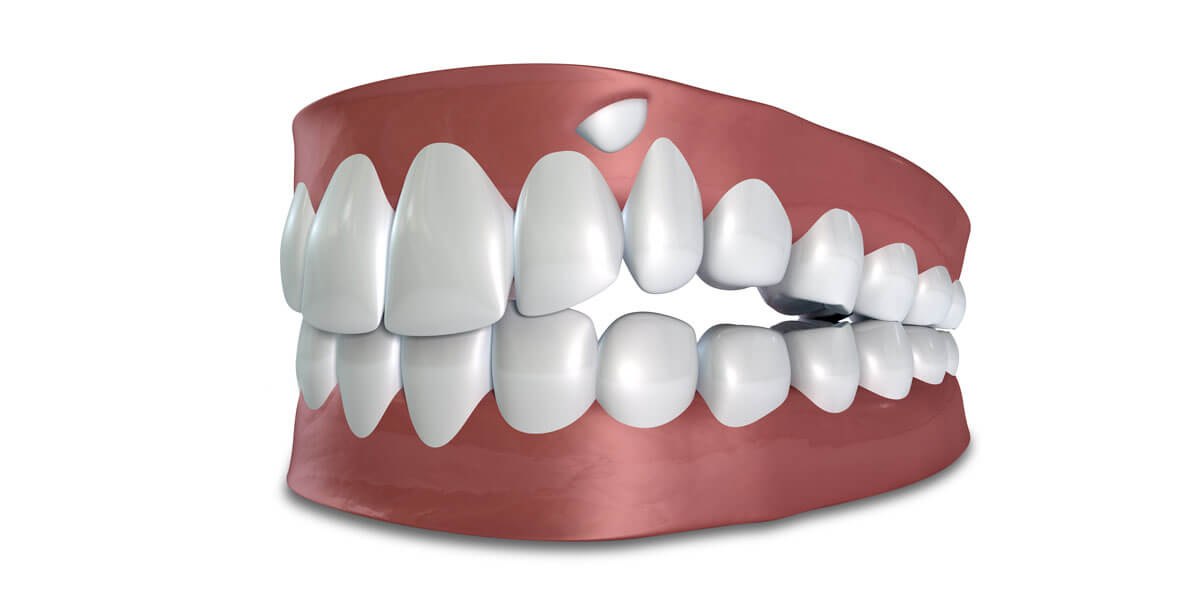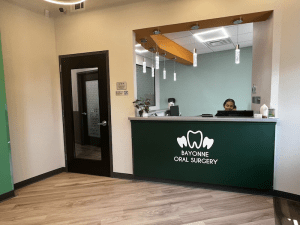Impacted Canines
Restoring Proper Canine Function
Canine teeth, also referred to as cuspids, play a crucial role in biting and tearing food, boasting some of the longest and most robust roots among human teeth. They contribute significantly to the development of your overall bite and the alignment of adjacent teeth. As a child matures, permanent teeth emerge at varying stages, making it imperative to ensure the proper eruption of incisors, canines, premolars, and molars.
Regrettably, canines are more susceptible to becoming impacted compared to other teeth. Impacted teeth can be partially or fully trapped beneath the gums, often due to obstructions in their growth path or other factors. Impacted teeth carry an elevated risk of infection and, if not promptly addressed, may become entrapped within the gums. Oral surgeons are equipped to treat impacted teeth, safeguarding your oral health.

Why do canines become impacted?
The most common teeth that become impacted are wisdom teeth and canine teeth. Wisdom teeth are not necessary for proper oral function and are simply removed. Canine teeth, however, play an important role in your oral health and every effort is made to help them function properly. There are a few reasons that teeth can become impacted. Some of the reasons include:
- Overcrowding or a lack of adequate space for teeth to grow in
- Cysts, growths, or other unusual structures blocking the tooth’s path
- Baby teeth not falling out in time for secondary teeth to come in
Regular dental exams are the most effective way to ensure none of these problems are developing. At these exams, a general dentist takes X-rays of the teeth. If an impacted canine tooth is discovered, he or she will refer you to an oral and maxillofacial surgeon for treatment. Early detection is key to the most optimal outcome.
Having regular dental exams before adult teeth develop (between ages 7 and 10) can help prevent them from becoming impacted. An oral exam tracking the progress of canine teeth beneath the gums involves a panoramic X-ray or 3D scan to determine the exact location of the teeth. If the growth track is blocked and the teeth cannot erupt naturally, our oral surgeon will provide treatment to help the tooth emerge properly.
What Occurs If an Untreated Impacted Canine Tooth Persists?
If impacted canine teeth are left untreated until the teenage and early adult years, the teeth’s roots will fully develop while remaining trapped beneath the gum line, rendering their emergence impossible. An oral surgeon can extract the impacted teeth and subsequently replace them with dental implants. Our skilled oral surgeons are highly proficient in dental implant placement and will exhaust all options to preserve your natural teeth before considering alternative treatments.
When canine teeth are unable to function correctly, it can lead to misalignment of your other front teeth. Effective biting and tearing of food may become challenging. Additionally, inadequate tooth brushing and cleaning can result in tooth decay, which may extend to neighboring teeth, causing irreversible harm.”

